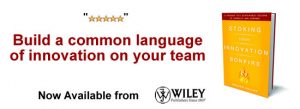Will Apple or Microsoft Dominate Home Energy Management?
Home energy management is hot and I’ve seen more than a dozen of companies having a very similar approach. It is almost hopeless for small start-ups to play this same, as many deep pockets have been working on this for a long time. Whirlpool and energy retailer Direct Energy have joined forces to showcase what the energy efficient home of the future will look like at the CES. I’ve seen some cool stuff from them.
I don’t think anyone have nailed it yet. Whirlpool Home Energy Manager (HEM) includes appliances that tap into a unified network to communicate how much energy they are using, when, why, and how much it is costing. This type of data transmission is what will eventually make it possible for your clothing dryer to know to turn on after your washing machine has finished the cycle. Or let you finish watching your 7.2 Dolby home movie before the oven starts baking. The goal is to optimize the use the of energy between all appliances.

User experience design is still one big challenge and OpenPeak is doing a pretty decent job. They have an iPhone like touch-screen dashboard to manage appliances to run at certain times, use that to change settings and to display consumption data. There are many other players such as Tendril, EnergyHub, People Power, Control4, and OPOWER. Whirlpool appliances, Lennox thermostats and OpenPeak dashboards together create the product package and Direct Energy will be testing the market in Houston.
The latest player, guess who, is Apple. They just filed an application this week called the Intelligent Power Monitoring that allow people to reduce energy use by giving them tools to manage how connected devices are powered. Users could get recommendations on when to schedule gadget charging to take advantage of off-peak rates, for example. Or the electronics controller could put devices in hibernate mode after a set amount of time. Users could have a display, such as an LCD screen, or a movable projector to control these tasks and monitor electricity use. No question this will be the coolest one.

Apple talks about power management in its patent application as: “Some personal computers sometimes are being left on simply to serve as power supplies for the charging of the aforementioned portable devices via connections, such as USB connections, that provide power in addition to data (rather than charging those devices from the household electric service using their dedicated chargers), even though the power supply of a personal computer is much larger than is needed for such a function, and as such draws much more power than such a function would otherwise demand. As the price of electricity increases, such uses of power can cost users more.”

This is definitely going to be another platform play, both from a standard and user experience perspectives. Microsoft is also active in this space and giving away its energy management tool Hohm to consumers for free. Distribution is a key factor here and both Apple and Microsoft has no apparent advantages. Is this going to be Microsoft vs Apple all over gain?
Enjoy this post? Subscribe to our RSS feed and join our Continuous Innovation group!
 Idris Mootee is the CEO of idea couture, a strategic innovation and experience design firm. He is the author of four books, tens of published articles, and a frequent speaker at business conferences and executive retreats.
Idris Mootee is the CEO of idea couture, a strategic innovation and experience design firm. He is the author of four books, tens of published articles, and a frequent speaker at business conferences and executive retreats.
NEVER MISS ANOTHER NEWSLETTER!
LATEST BLOGS
The Network Operators are Dead – Long Live the Mobile Operators
There is little doubt now that the telecommunications industry is a tumultous and precarious place to be. On the wireline side, baby bells and cable companies are engaged in a necessary but costly arms race. Both are forced to invest in increasing broadband capacity and coverage while simultaneously facing increasing competition from wireless service providers.
Read MoreInvention versus Innovation – Auto Industry Example
Here is an invention that never became an innovation (for sale on eBay): Want to buy a car with disappearing doors? (check out the video) Up next week – “Invention versus Innovation” How do you think invention and innovation are different? I’ll give you my point of view next week.
Read More


